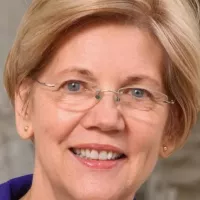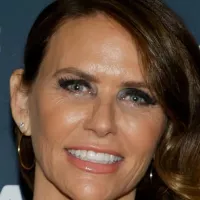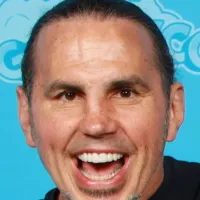"Massachusetts, officially the Commonwealth of Massachusetts, is a state located in the New England region of the Northeastern United States. It is bordered by the Atlantic Ocean and Gulf of Maine to the east, Connecticut and Rhode Island to the south, New Hampshire and Vermont to the north, and New York to the west. Massachusetts is the 6th smallest state by land area, but the most populous state in New England, and the 16th most populous in the country, with over seven million residents (as of 2020)."
1917: First North American Discovery of European Corn Borer
The European corn borer, a destructive agricultural pest, was first detected in North America near Boston, Massachusetts in 1917.
1920: Growth of the Jewish Population
Between 1880 and 1920, a significant Jewish population immigrated to the Boston and Springfield areas, contributing to the state's religious diversity.
1924: Birth of George H.W. Bush
George H. W. Bush, the 41st President of the United States, was born in Milton, Massachusetts in 1924.
October 1929: The Great Depression Begins
Although the U.S. stock market had already experienced losses, the beginning of the Great Depression is marked by October 29, 1929. The Boston Stock Exchange, influenced by the panic selling of the New York Stock Exchange, lost over 25 percent of its value in two days.
January 1930: John C. Hull Becomes First Securities Director of Massachusetts
Appointed by Governor Frank G. Allen, John C. Hull assumed the position of Securities Director in January 1930, serving until 1936.
1931: Start of Period with Few Republican Speakers
From 1931 to 1995, there were few Republican Speakers of the House.
1936: End of John C. Hull's Term
John C. Hull's term as the Securities Director of Massachusetts ended in 1936.
1939: Joseph W. Martin, Jr. Becomes Leader of House Republicans
Joseph W. Martin, Jr. assumed the role of leader of House Republicans in 1939, holding the position until 1959.
1947: Joseph W. Martin, Jr. Becomes Speaker of the House
Joseph W. Martin, Jr. began his first term as Speaker of the House in 1947, serving until 1949.
1948: Proposal for I-95 Through Downtown Boston
The initial proposal to route I-95 northeastward from Providence, Rhode Island, directly through Boston's downtown area was put forth in 1948.
1949: End of Joseph W. Martin, Jr.'s First Term as Speaker
Joseph W. Martin, Jr.'s initial tenure as Speaker of the House ended in 1949. He would later serve a second term from 1953 to 1955.
1950: Decline in Textile Manufacturing Employment
In 1950, there were 264,000 Massachusetts residents employed in textile manufacturing.
1952: John F. Kennedy's Senate Victory
John F. Kennedy's victory over incumbent Senator Henry Cabot Lodge Jr. in the 1952 Massachusetts Senate election is considered a pivotal moment in the state's political shift from Republican to Democrat.
1953: Joseph W. Martin, Jr.'s Second Term as Speaker Begins
Joseph W. Martin, Jr. commenced his second term as Speaker of the House in 1953, lasting until 1955.
1955: Conclusion of Joseph W. Martin, Jr.'s Second Term
Joseph W. Martin, Jr. concluded his second term as Speaker of the House in 1955.
1959: Joseph W. Martin, Jr.'s Tenure as Leader Ends
Joseph W. Martin, Jr.'s time as leader of House Republicans came to an end in 1959.
1962: Ted Kennedy Becomes Senator
Ted Kennedy became a senator in 1962 and served until his death in 2009.
1963: Assassination of John F. Kennedy
John F. Kennedy, senator and U.S. president, was assassinated in 1963.
1966: Edward Brooke Elected to U.S. Senate
In 1966, Massachusetts became the first state to directly elect an African American, Edward Brooke, to the U.S. senate.
1969: Closure of the Springfield Armory
The Springfield Armory closed in 1969, contributing to the loss of high-paying jobs and de-industrialization of Western Massachusetts.
1970: Governor Sargent's Freeway Construction Ban
Governor Francis W. Sargent of Massachusetts imposed a general ban on most new freeway construction within the I-95/Route 128 loop in the Boston area in 1970.
1972: Gerry Studds Elected as First Openly Gay Congressman
Gerry Studds was elected to the United States House of Representatives in 1972, becoming the first openly gay member of Congress.
1972: Massachusetts Supports McGovern
In 1972, Massachusetts was the only state to vote for Democratic candidate George McGovern in the presidential election.
1974: Elaine Noble's Historic Election
In 1974, Elaine Noble made history by becoming the first openly lesbian or gay candidate to be elected to a state legislature in the United States.
1977: Tip O'Neill Becomes Speaker of the House
Tip O'Neill's historic tenure as Speaker of the House commenced in 1977.
1979: Continued Decline in Textile Manufacturing Employment
By 1979, the number of Massachusetts residents working in textile manufacturing had dwindled to 63,000.
1980: Reagan's Narrow Victory
In the 1980 presidential election, Ronald Reagan won Massachusetts by a small margin, one of his closest victories in the country.
1984: Reagan's Last Victory in Massachusetts
In 1984, Ronald Reagan won the presidential election, including Massachusetts, marking the last time a Republican candidate would win the state.
1987: Tip O'Neill's Time as Speaker Concludes
After a record-breaking continuous service, Tip O'Neill's term as Speaker of the House concluded in 1987.
1987: Federal Funding for the Central Artery/Tunnel Project
In 1987, the state received federal funding for the Central Artery/Tunnel Project, also known as "the Big Dig", marking the largest federal highway project approved at that time.
1989: George H.W. Bush Becomes 41st President
George H. W. Bush, born in Milton, Massachusetts in 1924, assumed the presidency in 1989.
1991: Republican Governors in a Democratic State
Since 1991, only two Democrats, Deval Patrick and Maura Healey, have served as Governor of Massachusetts.
1993: End of George H.W. Bush's Presidency
George H. W. Bush's term as the 41st President of the United States concluded in 1993.
1993: Wampanoag Language Revival Project Begins
The Wampanoag tribe, with reservations at Aquinnah on Martha's Vineyard and Mashpee on Cape Cod, initiated a native language revival project in 1993.
1994: Democratic Dominance in Federal Representation
Since 1994, only one Republican, former Senator Scott Brown, has been elected to represent Massachusetts in either the House of Representatives or the Senate.
1995: End of Period with Few Republican Speakers
The period from 1931 to 1995, marked by a scarcity of Republican Speakers of the House, came to an end in 1995.
1997: Abolition of County Governments
Starting in 1997, Massachusetts began abolishing most of its county governments, including Middlesex County, the most populous.
1998: Deregulation of Massachusetts's Electricity Generation Market
In 1998, Massachusetts's electricity generation market was deregulated, allowing retail customers to choose their electricity suppliers.
2000: Stable Population Trends in Massachusetts
Between 2000 and 2010, numerous areas in Massachusetts exhibited relatively stable population trends.
2002: Republican Gubernatorial Popularity
From 2002 to 2022, Republican nominees for Governor received 48.4% of the vote, compared to 45.7% for Democratic nominees, indicating their popularity among the electorate.
2002: Massachusetts Voter Referendum on Income Tax
In 2002, a voter referendum in Massachusetts was passed to eventually lower the state's income tax rate to 5.0%.
November 2003: Goodridge v. Department of Public Health Decision
The Massachusetts Supreme Judicial Court issued its decision in the Goodridge v. Department of Public Health case in November 2003, declaring the exclusion of same-sex couples from civil marriage unconstitutional.
2003: Legalization of Same-Sex Marriage
In a landmark decision, the Massachusetts Supreme Judicial Court ruled in 2003 to allow same-sex marriage, making it the first state in the U.S. to do so.
May 17, 2004: Massachusetts Legalizes Same-Sex Marriage
On May 17, 2004, Massachusetts became the first state in the U.S. to legalize same-sex marriage, following the landmark Goodridge v. Department of Public Health ruling in November 2003.
2004: John Kerry Loses Presidential Election
In 2004, Massachusetts senator John Kerry, the Democratic nominee for President, was defeated by incumbent George W. Bush.
2004: Massachusetts Legalizes Same-Sex Marriage
Massachusetts became the first state in the United States to legalize same-sex marriage in 2004.
2005: Immigrant Origins in Massachusetts
According to a 2005 Census Bureau study, 40% of foreign immigrants in Massachusetts originated from Central or South America, with a significant portion coming from Asia.
2006: Mandated Health Insurance
In 2006, Massachusetts passed a bill requiring all residents to have health insurance, a precursor to the Affordable Care Act.
2006: Massachusetts Passes Near-Universal Healthcare Law
In 2006, Massachusetts took a pioneering step by becoming the first state to pass a law ensuring near-universal healthcare coverage.
2007: Nonprofit Awareness Day Established
In 2007, Governor Deval Patrick signed legislation establishing Nonprofit Awareness Day, recognizing the significant contributions of the more than 33,000 nonprofits and their workforce in Massachusetts.
2008: Decriminalization of Marijuana Possession
Massachusetts voters passed an initiative in 2008 to decriminalize the possession of small amounts of marijuana.
2009: Edward M. Kennedy's Death
Edward M. Kennedy, who held the Massachusetts Senate seat previously held by his brother John F. Kennedy, passed away in 2009 from a brain tumor.
2009: Increase in Great White Shark Sightings
Since 2009, there has been a notable rise in the number of Great white sharks observed and tagged in the waters off Cape Cod.
2009: Death of Ted Kennedy
Ted Kennedy, a long-serving senator from Massachusetts, passed away in 2009.
2010: Population Trends in Massachusetts
Between 2000 and 2010, many areas in Massachusetts experienced relatively stable population trends. However, exurban Boston and coastal areas saw the most rapid growth, while Berkshire County and Barnstable County on Cape Cod experienced population decline.
2010: Largest Religious Denominations
Data from The Association of Religion Data Archives in 2010 highlighted the Catholic Church as the largest religious denomination in Massachusetts with 2,940,199 adherents, followed by the United Church of Christ and the Episcopal Church.
2010: Language Demographics in Massachusetts
In 2010, a survey of Massachusetts residents aged 5 and older revealed that 78.93% spoke English at home as their first language. Spanish followed with 7.50%, and other prevalent languages included Portuguese, Chinese, French, and French Creole. Notably, 21.07% of the population over 5 years old spoke a primary language other than English.
2010: Growth in International Air Traffic
Since 2010, Boston-Logan International Airport experienced substantial growth in international air traffic.
2010: Massachusetts Experiences Population Growth
The 2010 census revealed that Massachusetts continued to experience population growth, influenced by foreign immigration, particularly in gateway cities with lower living costs.
2010: '1,000 Great Places in Massachusetts' Published
The Great Places in Massachusetts Commission released "1,000 Great Places in Massachusetts" in 2010, showcasing 1,000 diverse historical, cultural, and natural attractions across the state.
2012: Massachusetts Agriculture Census
As of 2012, there were 7,755 farms in Massachusetts encompassing a total of 523,517 acres, with greenhouse, floriculture, and sod products comprising over one-third of the state's agricultural output.
2012: Mitt Romney Unsuccessful in Presidential Bid
Former Massachusetts governor Mitt Romney, the Republican nominee for President in 2012, lost to incumbent Barack Obama.
2012: Amtrak Market Share Between Boston and New York
In 2012, Amtrak carried more passengers between Boston and New York than all airlines combined, capturing approximately 54% of the market share.
2012: Legalization of Medical Marijuana
In 2012, Massachusetts voters approved the legalization of medical marijuana, allowing qualified patients to access cannabis for therapeutic purposes.
2012: Public School Expenditure
Massachusetts ranked eighth in the nation for per-student public expenditure on elementary and secondary schools in 2012, with an expenditure of $14,844.
2012: Per Capita Personal Income
Massachusetts recorded a per capita personal income of $53,221 in 2012, securing its position as the third-highest in the nation.
2012: Massachusetts Electoral Votes in Presidential Elections
Since the 2012 U.S. presidential election, Massachusetts has had 11 electoral votes out of 538.
April 15, 2013: Boston Marathon Bombing
Tragedy struck the Boston Marathon on April 15, 2013, when two pressure cooker bombs detonated near the finish line at approximately 2:49 pm local time, claiming the lives of three individuals and injuring an estimated 264 others.
2013: High Concentration of Millionaires
A 2013 study by Phoenix Marketing International revealed that Massachusetts had the sixth-highest concentration of millionaires per capita in the US, at 6.73 percent.
2013: CapeFLYER Passenger Rail Service Launch
In the summer of 2013, the Cape Cod Regional Transit Authority, in partnership with the MBTA and MassDOT, launched the CapeFLYER passenger rail service between Boston and Cape Cod.
2013: National Assessment of Educational Progress Results
Massachusetts students demonstrated high academic achievement in 2013, achieving the highest score in math and the third-highest score in reading on the National Assessment of Educational Progress.
2014: Massachusetts: A Pro-Choice State
A 2014 Pew Research Center poll revealed that 74% of Massachusetts residents supported abortion rights in all or most cases, highlighting the state's strong pro-choice stance.
2014: Religious Landscape of Massachusetts
A 2014 Pew study indicated that Christians constituted 57% of Massachusetts' population, with Catholics outnumbering Protestants due to immigration patterns. This marked a decline from the late 20th century, attributed to the rise of irreligion in New England.
2014: Rise of Irreligion
In 2014, 32% of Massachusetts' population identified as having no religion, signifying a growing trend of irreligion in the state.
2014: Boston Logan International Airport Passenger Traffic
In 2014, Boston Logan International Airport accommodated 31.6 million passengers.
2014: Massachusetts Ranked Most Energy Efficient State
In 2014, Massachusetts achieved the top ranking for energy efficiency among all U.S. states.
2014: Foreign-Born Residents in Massachusetts
In 2014, Massachusetts had 1,011,811 foreign-born residents, accounting for 15% of the state's population.
2014: Gender and Age Demographics in Massachusetts
In 2014, the population of Massachusetts was 48.4% male and 51.6% female. In terms of age distribution, 79.2% of the population was over 18 years old, and 14.8% was over 65.
2015: Boston Logan International Airport Passenger Traffic
Boston Logan International Airport served 33.5 million passengers in 2015, a significant increase from the 31.6 million passengers served in 2014.
2015: Massachusetts Ranks Third in Population Density
In 2015, Massachusetts was estimated to be the third most densely populated state in the U.S., with 871.0 people per square mile, following New Jersey and Rhode Island.
2015: Massachusetts General Hospital Ranked Among the Best
In 2015, U.S. News & World Report ranked Massachusetts General Hospital, founded in 1811 and a teaching hospital for Harvard University, among the top three in two healthcare specialties.
2015: Massachusetts Ranked Third Healthiest State
In 2015, the United Health Foundation ranked Massachusetts as the third healthiest state overall.
2015: Fortune 500 Companies in Massachusetts
In 2015, twelve Fortune 500 companies called Massachusetts home, including Liberty Mutual, Massachusetts Mutual Life Insurance Company, TJX Companies, General Electric, Raytheon, and more.
2015: Massachusetts Maintains Top Energy Efficiency Ranking
Massachusetts was again ranked as the most energy efficient state in the United States in 2015.
August 2016: EPA Report on Temperature Increases
The EPA reported in August 2016 that Massachusetts had experienced a temperature increase exceeding two degrees Fahrenheit, or 1.1 degrees Celsius.
November 8, 2016: Massachusetts Marijuana Legalization Initiative Passes
On November 8, 2016, voters in Massachusetts approved Question 4, the Massachusetts Marijuana Legalization Initiative.
2016: Massachusetts: A Hub of Innovation
For the second consecutive year, Bloomberg recognized Massachusetts as the most innovative state in America in 2016.
2016: Endorsement of Recreational Marijuana Legalization
In 2016, Massachusetts voters approved a ballot question to legalize recreational marijuana, paving the way for the establishment of a regulated market.
2016: Manufacturing Output in Massachusetts
While manufacturing constituted less than 10% of Massachusetts's gross state product in 2016, the state held the 16th position in total manufacturing output in the US, encompassing a wide range of goods.
February 2017: U.S. News & World Report Best States Ranking
In February 2017, U.S. News & World Report ranked Massachusetts as the best state in the United States based on its performance across 60 metrics, including healthcare, education, crime, infrastructure, opportunity, economy, and government.
June 2018: Issuance of Licenses for Recreational Marijuana
In June 2018, Massachusetts began issuing licenses for the regulated sale of recreational marijuana, a significant step towards the full implementation of legalization.
July 1, 2018: Legalization of Recreational Marijuana Sales
On July 1, 2018, the sale of recreational marijuana became legal in Massachusetts, following the legalization efforts that began in 2016.
2018: Freight Railroad Operations in Massachusetts
As of 2018, CSX was the largest freight railroad operator in Massachusetts, with Norfolk Southern also serving the state through its Pan Am Southern joint partnership.
2018: Democratic Supermajority in the State Legislature
Following the 2018 elections, the Democratic Party secured a supermajority in both chambers of the Massachusetts General Court.
2018: Massachusetts Energy Consumption
In 2018, Massachusetts consumed 1,459 trillion BTU of energy, with natural gas providing 31 percent of the state's energy consumption.
2018: Massachusetts Education System Ranked Top in the US
In 2018, U.S. News & World Report ranked Massachusetts's overall educational system as the best in the country, reflecting its historical commitment to education and innovation.
2018: Top Countries of Origin for Immigrants in Massachusetts
In 2018, the primary countries of origin for immigrants in Massachusetts were China, the Dominican Republic, Brazil, India, and Haiti.
2018: Minimum Wage Amendments Passed
The state government passed a series of minimum wage amendments in 2018, setting in motion gradual increases to the minimum wage, culminating in the $15.00 per hour rate in January 2023.
January 1, 2020: Massachusetts Personal Income Tax Rate
As of January 1, 2020, Massachusetts has a flat-rate personal income tax of 5.00%.
April 22, 2020: Massachusetts Releases Decarbonization Plan
On April 22, 2020, Massachusetts Secretary of Energy and Environmental Affairs Kathleen A. Theoharides released a plan to decarbonize the state's economy with a goal to achieve net-zero emissions by 2050. The plan aimed to address the over $60 billion in property damage attributed to climate change the Commonwealth had experienced as of 2020.
2020: Massachusetts Ranked 11th Easiest State for Voting
A 2020 study ranked Massachusetts as the 11th easiest state for citizens to vote in.
2020: Religious Identification Trends
A separate study in 2020 showed 23% of the population identifying as irreligious, while 67% identified as Christians, including a significant proportion of white Protestants and Catholics.
2020: Population of Massachusetts
As of 2020, Massachusetts had over seven million residents.
2020: Shifting Religious Demographics
By 2020, the Public Religion Research Institute observed a slight increase in religiosity in Massachusetts, with 67% of the population identifying as Christian.
2020: Ranked-Choice Voting Rejected
Despite support from progressives, a 2020 ballot initiative to implement Ranked-Choice Voting in Massachusetts failed.
2020: Passage of the ROE Act
In 2020, the Massachusetts legislature overrode Governor Charlie Baker's veto and passed the ROE Act, which codified abortion rights, lowered the age of parental consent for abortions to 16, and legalized abortion after 24 weeks in cases of fatal fetal anomalies or to preserve the patient's health.
2020: Gross State Product Estimate
In 2020, the United States Bureau of Economic Analysis estimated Massachusetts's gross state product to be $584 billion.
2020: Massachusetts Announces Decarbonization Roadmap
In late 2020, Governor Charlie Baker's administration in Massachusetts released a decarbonization roadmap with a target to reach net-zero greenhouse gas emissions by 2050. The plan included significant investments in offshore wind and solar energy.
2020: Biden's Landslide Victory
Joe Biden won the 2020 presidential election in Massachusetts with 65.6% of the vote, the highest percentage for a Democratic candidate in over 50 years.
2020: Elizabeth Warren Runs for President
Massachusetts senator Elizabeth Warren emerged as a prominent contender in the Democratic primaries for the 2020 presidential election but later suspended her campaign, endorsing eventual nominee Joe Biden.
2020: Massachusetts Population Surpasses 7 Million
The 2020 U.S. census recorded a population of over 7 million in Massachusetts, marking a 7.4% increase from the 2010 census.
2021: High Levels of Educational Attainment
As of 2021, Massachusetts boasted the highest percentage of adults aged 25 and older with a Bachelor's degree (46.62%) and a graduate degree (21.27%) among all US states.
2022: Massachusetts: Part of the Unchurched Belt
By 2022, a plurality of Massachusetts residents identified as irreligious, solidifying the state's place within the Unchurched Belt.
2022: Public Religion Research Institute's American Values Survey
In 2022, the Public Religion Research Institute conducted the American Values Survey, gathering data on religious self-identification in Massachusetts.
2022: Most Recent Amendment to the Massachusetts Constitution
The Massachusetts Constitution, drafted by John Adams, is the world's oldest functioning written constitution in continuous operation and was most recently amended in 2022.
2022: End of an Era
The year 2022 marked the conclusion of a period where Republican gubernatorial candidates consistently garnered a significant portion of the vote share in Massachusetts.
January 2023: Minimum Wage Increase
As of January 2023, the minimum wage in Massachusetts reached $15.00 per hour for general workers and $6.75 for tipped workers, reflecting a series of incremental increases initiated in 2018.
July 2023: Estimated Population of Massachusetts
As of July 2023, the population of Massachusetts is estimated to be 7,001,399.
2023: Massachusetts Ranks First in Median Income
By 2023, Massachusetts ranked first in median income in the United States.
2023: Massachusetts Ranked 15th Best State for Business
CNBC's "Top States for Business for 2023" ranked Massachusetts as the 15th best state in the US for business.
2023: Near-Universal Support for Same-Sex Marriage
The 2023 American Values Atlas by the Public Religion Research Institute showed near-universal support for same-sex marriage among Massachusetts residents.
2035: Massachusetts Sets Target for Zero-Emissions Vehicles
As part of its 2020 decarbonization roadmap, Massachusetts plans to require all new car sales in the state to be zero-emissions vehicles, powered by electricity or hydrogen, by 2035.
2035: Projected Temperature Increase in the Northeast
Projections from the U.S. Global Change Research Program indicate that by 2035, the Northeast region is expected to be over 3.6 degrees Fahrenheit (2 degrees Celsius) warmer on average compared to preindustrial times.
2050: Massachusetts Targets Net-Zero Emissions
By 2050, Massachusetts aims to achieve net-zero emissions and reduce greenhouse gas emissions by 85% to limit warming to no more than 1.5 °C above pre-industrialization levels.
Mentioned in this timeline

Barack Obama the th U S President - was the...

John F Kennedy JFK was the th U S President...

Elizabeth Warren is a prominent American politician and the senior...

George W Bush the rd U S President - is...

Joe Biden is an American politician who served as the...
The Affordable Care Act ACA also known as Obamacare is...
Trending

51 minutes ago Bradley Whitford and Amy Landecker Star in New Rom-Com 'For Worse': A Sneak Peek

51 minutes ago Crispin Glover, 'Back to the Future' Actor, Faces Battery and Fraud Lawsuit
51 minutes ago Broadcom Launches BroadPeak, Stock Slides Amid AI Chip Deal Rumors, Expands 6G Portfolio

2 hours ago WrestleMania 42 tickets on sale, Matt Hardy involved; TKO faces criticism.

10 months ago Koe Wetzel: Coachella 'Crazy', Stagecoach Debut & Jessie Murph's Superstardom

3 hours ago Zachary Levi Hosts 'David: King of Israel' Docudrama on Fox Nation.
Popular

Jesse Jackson is an American civil rights activist politician and...

Susan Rice is an American diplomat and public official prominent...

Barack Obama the th U S President - was the...

XXXTentacion born Jahseh Dwayne Ricardo Onfroy was a controversial yet...

Michael Joseph Jackson the King of Pop was a highly...

Michael Jordan widely considered one of basketball's greatest players significantly...